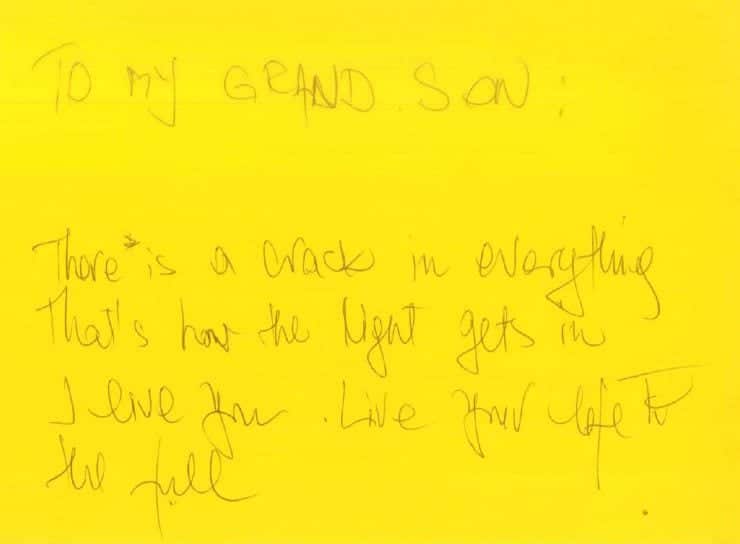
The above was one of the responses to “Post it: a memory you would hand over to someone from the future” in last week’s Telling Your Story workshop, which focused on writing with memory.
This second session of a three-part course explores memory as something born of sensation and stored as perception, i.e. we create memories in the moment of experiencing senses and emotions and over time, reshape them according to personal interpretations. Therefore, memories come to resemble products of the imagination more than those of reality. However, the overriding tendency is to believe that our memories are our reality.
“The real voyage of discovery consists, not in seeking new landscapes, but in having new eyes.” – Marcel Proust
To borrow from the ideas of Proust (a prolific writer on memory) the aim of this workshop is to discover the landscapes of our memories with new eyes, shedding some of the dull or painful exteriors we’ve come to believe make up their entirety.
Last week, participants voiced concern that they found themselves “making things up” when writing about a certain memory – perhaps they couldn’t quite recall how the house smelt when they first moved in, or what exactly their friend said when they were sixteen that made them laugh so much. In answer to this concern, I said that in a writing workshop, even one based on life stories, truth loses its command in favour of what feels right; the feeling makes the story, and the story takes precedent. After all, we’re not working in a court of law.
The work produced in this workshop revealed the cathartic nature of writing; how when we allow feeling rather than intellect, or perceived truth, to lead our pen, we open up potential to unravel tightly coiled emotions in a gentle and deeply personal way. Below are some of the results, relating memories – many assumed forgotten or no longer valuable – now seen through new eyes. The landscape of memory, it seemed, had become a brighter place to be.
A memory you would hand over to future generations
A memory that makes you re-live the sensations
A memory that makes you re-live the sensations
A memory that you would hand to future generations
Life Map: “I always thought I had a happier life in England, but now looking at this, I realise I had a happy life in Romania too. If I was to write a memoir about one part of this life map, it would be about living in the mountains with my son.”
Life Map: “I’ve tried to restyle myself so many times. It all began when old women would endlessly pat my curly hair and tell me how lovely and cute it was!” – Fiona
Memory map of childhood days spent playing on the street (see poem below)
Immersive remembering
“Playing in street, friends in housing,
Knocking on doors, playing
hopscotch, kurbys, football.
Avoiding cars; neighbours coming out,
Shouting at us, throwing the ball back to us
Loud noises in the street:
Kids laughing, screaming, crying
until you hear your parents calling
your names for mealtimes.
The street goes quiet.”
By Maria
Immersive remembering: moving home by Becky
